In recent years, there has been much debate surrounding the link between roasted peanuts and cholesterol. As one of the most popular snacks enjoyed around the world, peanuts have garnered both praise and criticism for their impact on cholesterol levels. In this article, we aim to delve deep into the science behind this controversy, separating fact from fiction and providing you with a comprehensive understanding of how roasted peanuts may affect your cholesterol levels. The Myth: Peanuts Increase Cholesterol Levels One of the most common misconceptions surrounding roasted peanuts is that they can significantly raise cholesterol levels. This belief stems from the fact that peanuts are high in fat, with approximately 50% of their calorie content coming from fat. However, it is essential to note that not all fats are created equal. The Truth About Fats in Peanuts The majority of the fat found in peanuts is monounsaturated and polyunsaturated fats, which are considered heart-healthy fats. These fats have been shown to lower LDL (bad) cholesterol levels while raising HDL (good) cholesterol levels, thus promoting overall heart health. Additionally, peanuts are a good source of plant phytosterols, compounds that have been proven to lower cholesterol levels by inhibiting the absorption of cholesterol in the gut. Furthermore, peanuts contain oleic acid, a type of monounsaturated fat also found in olive oil, known for its positive effects on cholesterol levels. Studies have shown that incorporating oleic acid into the diet can help reduce LDL cholesterol without affecting HDL cholesterol levels, making it a valuable ally in the fight against heart disease. The Role of Fiber in Cholesterol Management In addition to healthy fats, peanuts are also rich in dietary fiber, another key player in cholesterol management. Fiber works by binding to cholesterol in the digestive system, preventing it from being absorbed into the bloodstream. By including fiber-rich foods like peanuts in your diet, you can help lower LDL cholesterol levels, reduce the risk of heart disease, and promote digestive health. Research Supporting the Relationship Between Peanuts and Cholesterol Numerous studies have been conducted to investigate the impact of peanut consumption on cholesterol levels.
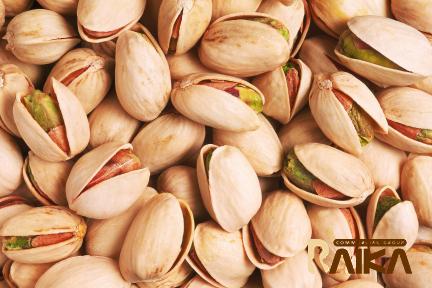
.
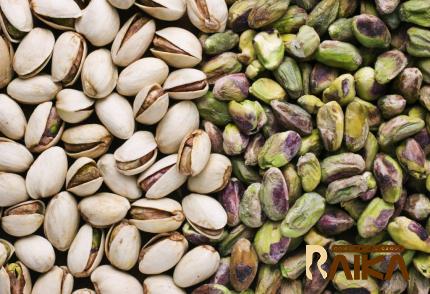 One study published in the Journal of Nutrition found that participants who consumed peanuts or peanut butter on a regular basis experienced a significant reduction in LDL cholesterol levels. The researchers attributed this effect to the synergistic combination of healthy fats, fiber, and phytosterols found in peanuts. Another study published in the American Journal of Clinical Nutrition concluded that incorporating peanuts into a cholesterol-lowering diet led to greater improvements in cholesterol profiles compared to a low-fat diet. The researchers noted that the monounsaturated fats in peanuts played a crucial role in this outcome, highlighting the importance of choosing nutrient-dense sources of fats for heart health. Tips for Incorporating Peanuts Into a Heart-Healthy Diet If you’re looking to reap the cholesterol-lowering benefits of peanuts, here are some tips for incorporating them into your diet: 1. Snack Smart: Opt for whole or dry-roasted peanuts without added salt or sugar as a satisfying and nutritious snack. 2. Add Crunch: Sprinkle chopped peanuts on top of salads, yogurt, or oatmeal to add a crunchy texture and a boost of heart-healthy fats. 3. Peanut Butter Power: Choose natural peanut butter made from 100% peanuts without added oils or sugars for a delicious spread that can be enjoyed on toast, fruit, or mixed into smoothies. 4. Get Creative: Experiment with homemade peanut sauces, dressings, and marinades to add flavor and nutritional benefits to your favorite dishes. 5. Pair with Complementary Foods: Combine peanuts with other cholesterol-lowering foods like fruits, vegetables, whole grains, and legumes to create balanced and heart-healthy meals. Final Thoughts In conclusion, roasted peanuts can be a valuable addition to a cholesterol-lowering diet when consumed as part of a balanced and varied eating plan. By harnessing the power of healthy fats, fiber, and phytosterols found in peanuts, you can support your heart health, improve cholesterol levels, and indulge in a tasty and nutrient-rich snack.
One study published in the Journal of Nutrition found that participants who consumed peanuts or peanut butter on a regular basis experienced a significant reduction in LDL cholesterol levels. The researchers attributed this effect to the synergistic combination of healthy fats, fiber, and phytosterols found in peanuts. Another study published in the American Journal of Clinical Nutrition concluded that incorporating peanuts into a cholesterol-lowering diet led to greater improvements in cholesterol profiles compared to a low-fat diet. The researchers noted that the monounsaturated fats in peanuts played a crucial role in this outcome, highlighting the importance of choosing nutrient-dense sources of fats for heart health. Tips for Incorporating Peanuts Into a Heart-Healthy Diet If you’re looking to reap the cholesterol-lowering benefits of peanuts, here are some tips for incorporating them into your diet: 1. Snack Smart: Opt for whole or dry-roasted peanuts without added salt or sugar as a satisfying and nutritious snack. 2. Add Crunch: Sprinkle chopped peanuts on top of salads, yogurt, or oatmeal to add a crunchy texture and a boost of heart-healthy fats. 3. Peanut Butter Power: Choose natural peanut butter made from 100% peanuts without added oils or sugars for a delicious spread that can be enjoyed on toast, fruit, or mixed into smoothies. 4. Get Creative: Experiment with homemade peanut sauces, dressings, and marinades to add flavor and nutritional benefits to your favorite dishes. 5. Pair with Complementary Foods: Combine peanuts with other cholesterol-lowering foods like fruits, vegetables, whole grains, and legumes to create balanced and heart-healthy meals. Final Thoughts In conclusion, roasted peanuts can be a valuable addition to a cholesterol-lowering diet when consumed as part of a balanced and varied eating plan. By harnessing the power of healthy fats, fiber, and phytosterols found in peanuts, you can support your heart health, improve cholesterol levels, and indulge in a tasty and nutrient-rich snack.
..
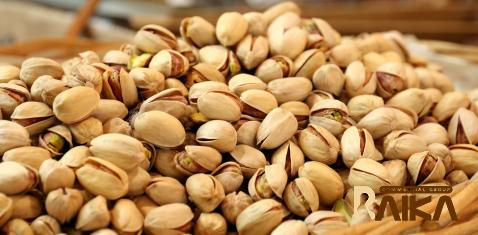 Remember that moderation is key, as peanuts are calorie-dense, and excessive consumption may lead to weight gain if not balanced with other nutrient-dense foods. As always, consult with a healthcare provider or registered dietitian to create a personalized nutrition plan tailored to your individual health needs and goals. So, the next time you reach for a handful of roasted peanuts, rest assured that you’re making a heart-smart choice that can benefit your cholesterol levels and overall well-being. Enjoy the delicious crunch of peanuts guilt-free, knowing that you’re nourishing your body with a snack that not only satisfies your cravings but also supports your cardiovascular health. Experience the goodness of roasted peanuts and embrace the journey to a healthier heart today. Indulge in the Richness of Roasted Peanuts for a Healthier Heart As you embark on your journey to discover the benefits of roasted peanuts for cholesterol management, it’s essential to explore the array of flavors and textures that this humble legume has to offer. From classic peanut butter to savory peanut sauces and everything in between, there are countless ways to incorporate roasted peanuts into your diet while reaping the rewards of their heart-healthy properties. Peanuts are not only a versatile and delicious snack but also a powerhouse of nutrients that can nourish your body and support your cardiovascular health. Rich in protein, fiber, healthy fats, vitamins, and minerals, peanuts offer a well-rounded nutritional profile that can enhance your overall well-being. In addition to their cholesterol-lowering effects, peanuts have also been shown to have numerous other health benefits, including: 1. Weight Management: Despite their calorie density, studies have suggested that the consumption of peanuts may actually aid in weight management due to their satiating properties. The combination of protein, fiber, and healthy fats in peanuts can help you feel full and satisfied, reducing the likelihood of overeating.
Remember that moderation is key, as peanuts are calorie-dense, and excessive consumption may lead to weight gain if not balanced with other nutrient-dense foods. As always, consult with a healthcare provider or registered dietitian to create a personalized nutrition plan tailored to your individual health needs and goals. So, the next time you reach for a handful of roasted peanuts, rest assured that you’re making a heart-smart choice that can benefit your cholesterol levels and overall well-being. Enjoy the delicious crunch of peanuts guilt-free, knowing that you’re nourishing your body with a snack that not only satisfies your cravings but also supports your cardiovascular health. Experience the goodness of roasted peanuts and embrace the journey to a healthier heart today. Indulge in the Richness of Roasted Peanuts for a Healthier Heart As you embark on your journey to discover the benefits of roasted peanuts for cholesterol management, it’s essential to explore the array of flavors and textures that this humble legume has to offer. From classic peanut butter to savory peanut sauces and everything in between, there are countless ways to incorporate roasted peanuts into your diet while reaping the rewards of their heart-healthy properties. Peanuts are not only a versatile and delicious snack but also a powerhouse of nutrients that can nourish your body and support your cardiovascular health. Rich in protein, fiber, healthy fats, vitamins, and minerals, peanuts offer a well-rounded nutritional profile that can enhance your overall well-being. In addition to their cholesterol-lowering effects, peanuts have also been shown to have numerous other health benefits, including: 1. Weight Management: Despite their calorie density, studies have suggested that the consumption of peanuts may actually aid in weight management due to their satiating properties. The combination of protein, fiber, and healthy fats in peanuts can help you feel full and satisfied, reducing the likelihood of overeating.
…
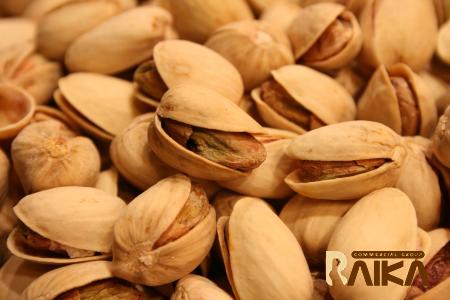 2. Blood Sugar Control: Peanuts have a low glycemic index, meaning they have a minimal impact on blood sugar levels. Including peanuts in your meals and snacks can help stabilize blood sugar and minimize spikes and crashes, making them an excellent choice for individuals with diabetes or prediabetes. 3. Antioxidant Protection: Peanuts are rich in antioxidants, including resveratrol, beta-sitosterol, and vitamin E, which help protect cells from damage caused by free radicals. These compounds have been linked to a reduced risk of chronic diseases, such as cancer, heart disease, and cognitive decline. 4. Nutrient Absorption: The healthy fats in peanuts can enhance the absorption of fat-soluble vitamins like vitamin E, a potent antioxidant that supports immune function and skin health. By pairing peanuts with foods rich in vitamins A, D, and K, you can maximize the bioavailability of these essential nutrients. Incorporating roasted peanuts into your daily routine can be a delicious and rewarding experience that not only pleases your taste buds but also nourishes your body from the inside out. Whether you enjoy them as a standalone snack, a flavorful topping, or a creamy spread, the possibilities are endless when it comes to incorporating peanuts into a heart-healthy diet. Embrace the richness and goodness of roasted peanuts as you journey towards a healthier heart and a happier life. With a newfound appreciation for this nutrient-dense and delicious legume, you can savor each bite knowing that you’re making a positive choice for your cholesterol levels and overall well-being. In conclusion, roasted peanuts are not just a tasty treat but a valuable ally in the quest for optimal heart health. By understanding the science behind their cholesterol-lowering effects and exploring their myriad health benefits, you can make informed decisions about incorporating peanuts into your diet. From their heart-healthy fats to their cholesterol-regulating fiber, peanuts offer a unique combination of nutrients that can support your cardiovascular health and enhance your overall quality of life. So, the next time you reach for a handful of roasted peanuts, savor the moment and appreciate the nourishment and joy that these little legumes bring to your life. Fuel your body, feed your soul, and celebrate the goodness of roasted peanuts as you embark on a path towards a healthier heart and a brighter future.
2. Blood Sugar Control: Peanuts have a low glycemic index, meaning they have a minimal impact on blood sugar levels. Including peanuts in your meals and snacks can help stabilize blood sugar and minimize spikes and crashes, making them an excellent choice for individuals with diabetes or prediabetes. 3. Antioxidant Protection: Peanuts are rich in antioxidants, including resveratrol, beta-sitosterol, and vitamin E, which help protect cells from damage caused by free radicals. These compounds have been linked to a reduced risk of chronic diseases, such as cancer, heart disease, and cognitive decline. 4. Nutrient Absorption: The healthy fats in peanuts can enhance the absorption of fat-soluble vitamins like vitamin E, a potent antioxidant that supports immune function and skin health. By pairing peanuts with foods rich in vitamins A, D, and K, you can maximize the bioavailability of these essential nutrients. Incorporating roasted peanuts into your daily routine can be a delicious and rewarding experience that not only pleases your taste buds but also nourishes your body from the inside out. Whether you enjoy them as a standalone snack, a flavorful topping, or a creamy spread, the possibilities are endless when it comes to incorporating peanuts into a heart-healthy diet. Embrace the richness and goodness of roasted peanuts as you journey towards a healthier heart and a happier life. With a newfound appreciation for this nutrient-dense and delicious legume, you can savor each bite knowing that you’re making a positive choice for your cholesterol levels and overall well-being. In conclusion, roasted peanuts are not just a tasty treat but a valuable ally in the quest for optimal heart health. By understanding the science behind their cholesterol-lowering effects and exploring their myriad health benefits, you can make informed decisions about incorporating peanuts into your diet. From their heart-healthy fats to their cholesterol-regulating fiber, peanuts offer a unique combination of nutrients that can support your cardiovascular health and enhance your overall quality of life. So, the next time you reach for a handful of roasted peanuts, savor the moment and appreciate the nourishment and joy that these little legumes bring to your life. Fuel your body, feed your soul, and celebrate the goodness of roasted peanuts as you embark on a path towards a healthier heart and a brighter future.

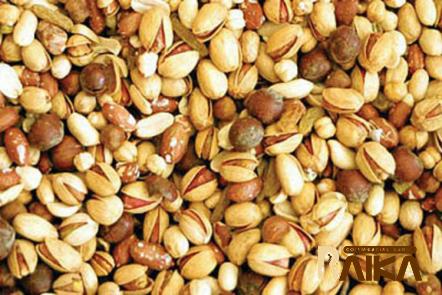

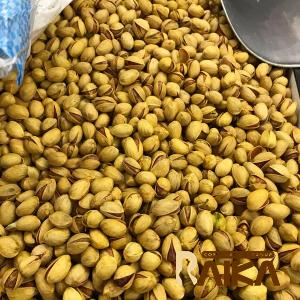

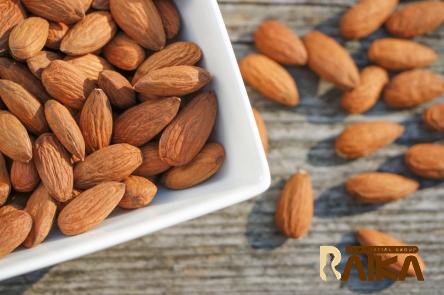

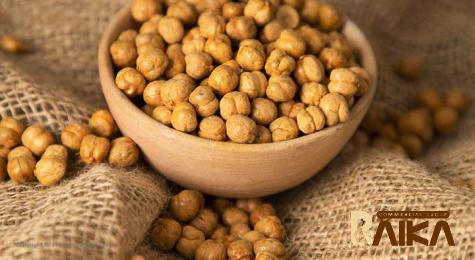
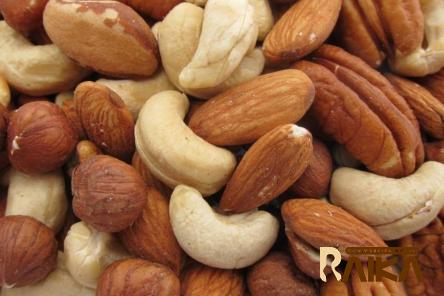
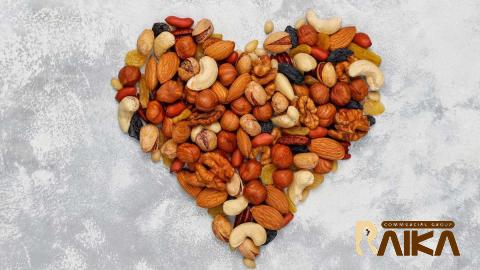
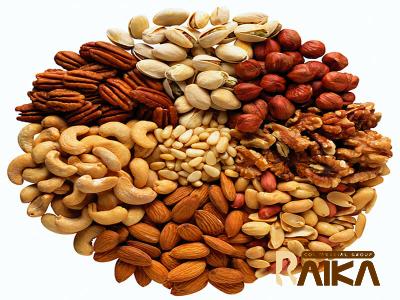
Your comment submitted.